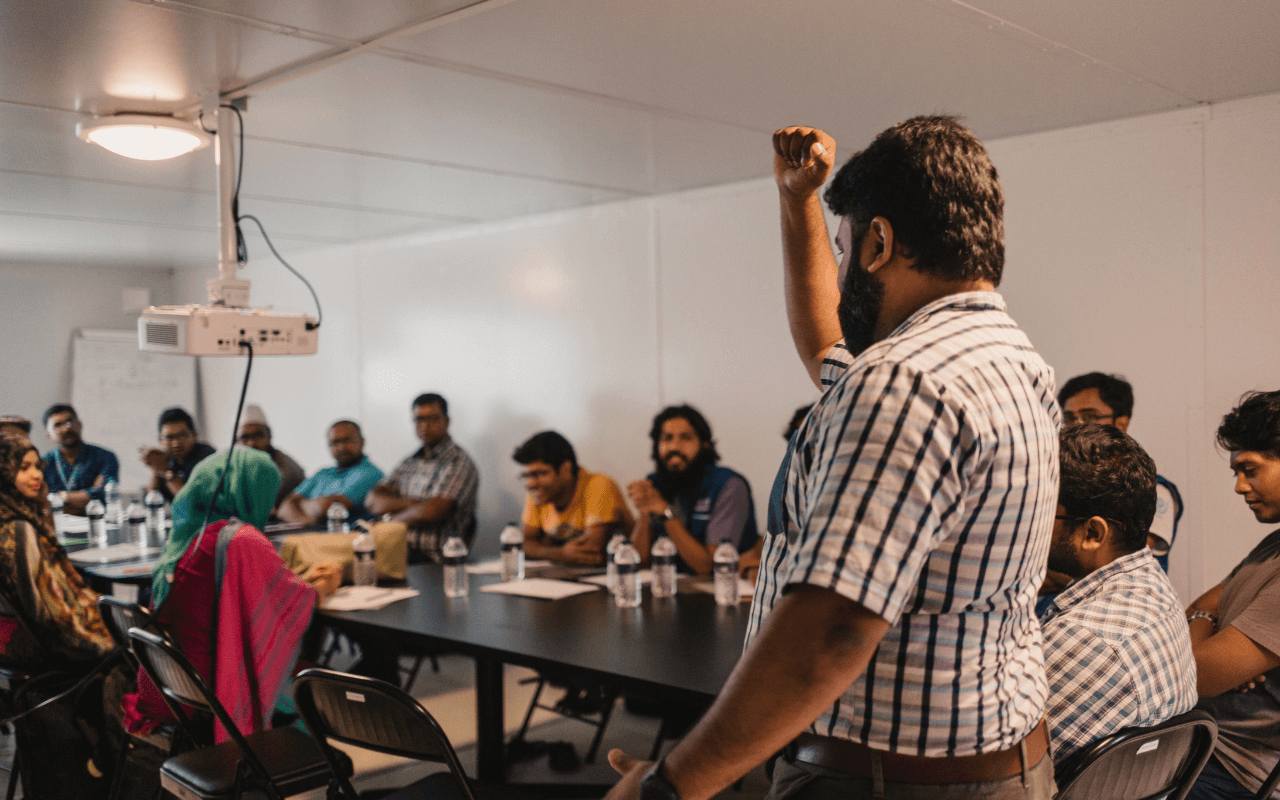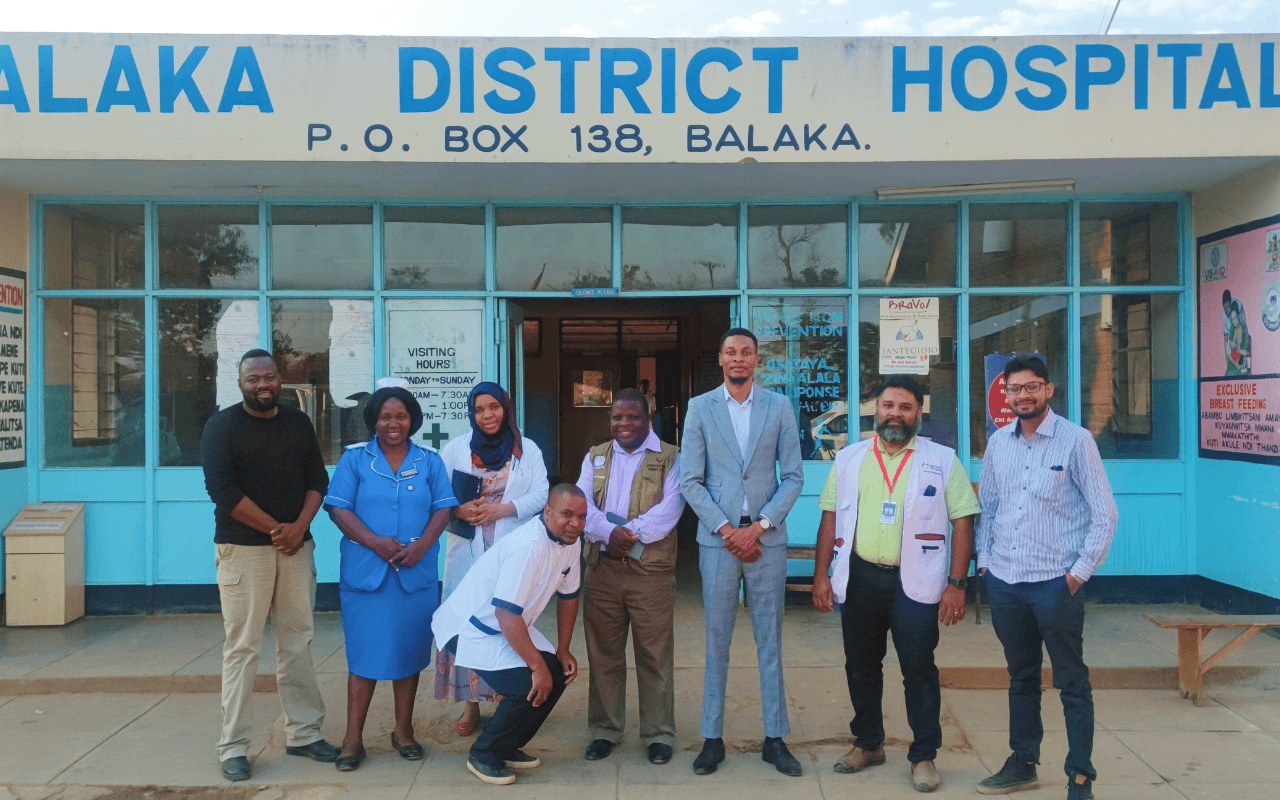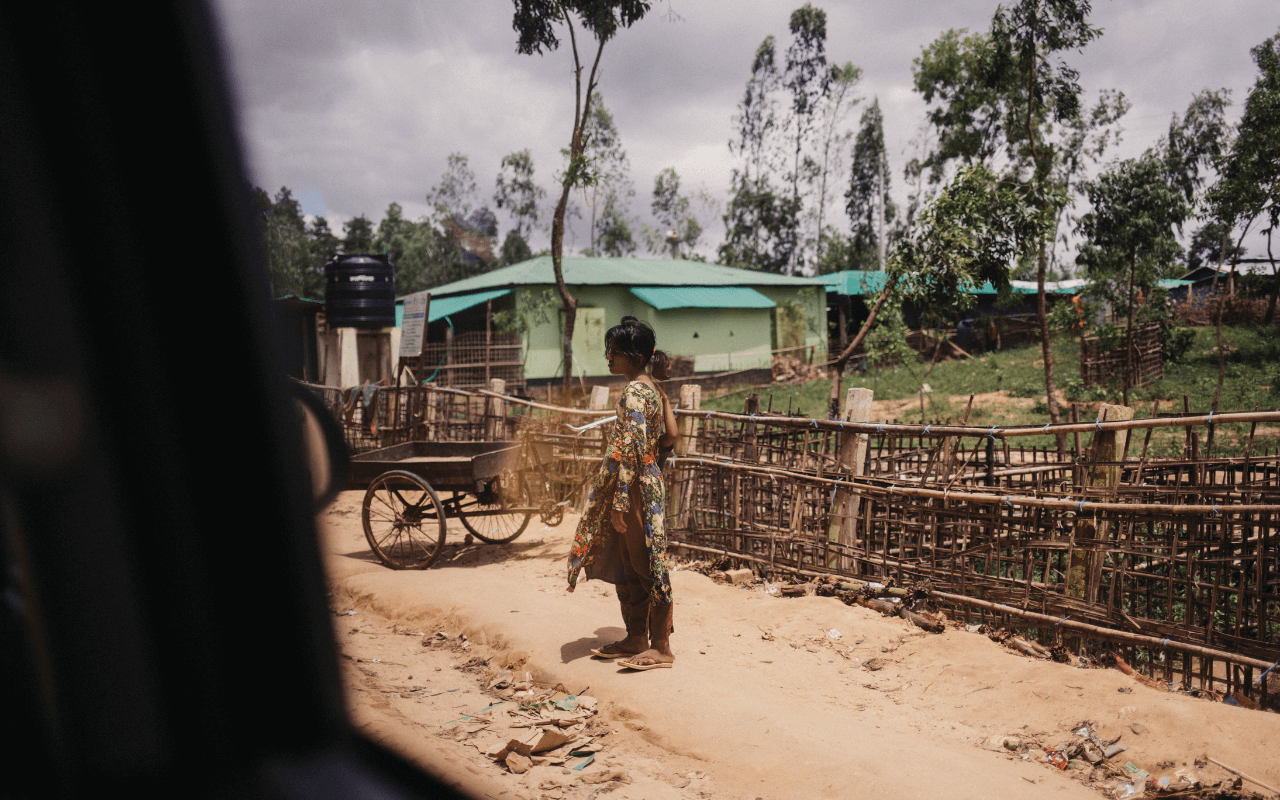Our Sustainable Futures campaign explores the values of Doctors Worldwide - integrity, collaboration, and clinical excellence - and how they are embedded in all of the work we do to ensure long-term, sustainable solutions to healthcare challenges. Today, Dr Mir Saaduddin Ahmad, our Programme Director, shares his thoughts on the importance of system strengthening and capacity building through insight into his work in Bangladesh, and recent visit to Malawi.
How often do we feel our heartstrings being tugged at when we see a starving child, or a struggling refugee being streamed across our screens? These awareness campaigns are enough to make many of us donate to the plethora of charities and organisations involved in humanitarian aid. It may be the first act of donation for some, it may be one of many; irrespective, we move on with our lives. Don’t get me wrong, there is nothing wrong with us moving on; the problem lies with the charities when they move on.
One of the markers of a charity’s success is a measure of its impact. An easy way for a healthcare charity to do this is by measuring the number of patient encounters. The larger the charity, the larger the number of encounters, the greater impact… to an extent. Once you start peeling back the layers of humanitarian health aid, especially in times of crisis, you quickly realise that the impact does not reach that far. The old adage holds true: give a man a fish, he will eat for a day; teach a man to fish, he will eat for a lifetime. Another way impact is measured is by the number of projects a charity is engaged in. Extensive reach can be a good thing, but if the organisations’ resources are spread too thin, then their effectiveness of outcome can be called into question.

When it comes to resources, there is no doubt that governments of low-to-middle income countries are spread thin. Despite their best intentions, there will be gaps. When these gaps exist in essential services, such as healthcare, non-governmental organisations (NGOs) step in. NGOs have played a vital role in the development of Bangladesh, where I work. The pattern of establishing a presence, implementing an action, measuring an impact and then moving on has unfortunately been quite the norm. Not only does it make the omission of services glaringly obvious, but it can depress the morale of native staff when they can’t reach these aspirational standards. It was only a few months ago that I was speaking to an official at the Directorate General of Health and Family Welfare in Dhaka and I was mentioning some health system strengthening concepts that we were developing. He expressed his dismay as many humanitarian organisations were focusing their activities in the Cox’s Bazar region, as a result of the Rohingya crisis, but ignoring the other regions of Bangladesh that also needed developing.
Doctors Worldwide recognises this and ensures that it engages in primarily system strengthening and capacity building collaborations. A great example of such a collaboration was the Postgraduate Fellowship in Refugee and Migrant Health (PGF) which was a medical capacity building programme for local healthcare workers serving in humanitarian settings to improve their clinical practice that ran from 2018 to 2021. As its Training Programme Director, I have been intimately involved with this project. Starting from its curriculum, its module distribution, and its specialist resource personnel, the PGF was designed to be informative, relevant and contextual. I am first-hand witness to the impact such a programme has had, and continues to have, to this day. An in depth review of the development of the PGF and its impact can be found in my article here.

I saw another such example of Doctors Worldwide’s commitment to its philosophy when I was recently deployed to Malawi this summer. Here, it is investing in the governance and operations of an umbrella organisation to ensure that its members can build upon a strong foundation to ensure that they, in turn, can provide standardised and quality healthcare to the neediest in their communities. Instead of building healthcare centres and handing them over to local communities, Doctors Worldwide is supporting its partners to build these facilities in remote and rural areas like Balaka. In doing so, it is not only training its partners in health facility management, but also ensuring that these facilities can be sustained by virtue of robust governance and strong operational systems.
As the world continues to get smaller, differences in standards will become a point of contention. Organisations must be flexible and continue to adapt to provide sustainable futures not only for their stakeholders, but also for themselves. I believe Doctors Worldwide is already ahead of the curve and as such can continue to save and change lives with your support.
If you are currently observing Ramadan this month, visit our dedicated landing page, distribute your donations automatically over the last ten nights of the month (Zakat eligible), or donate your Zakat to our Most in Need fund today.


